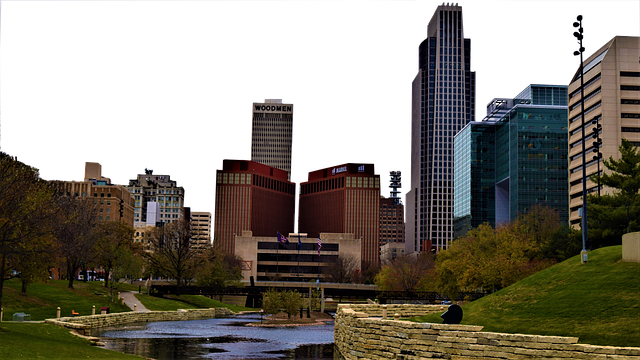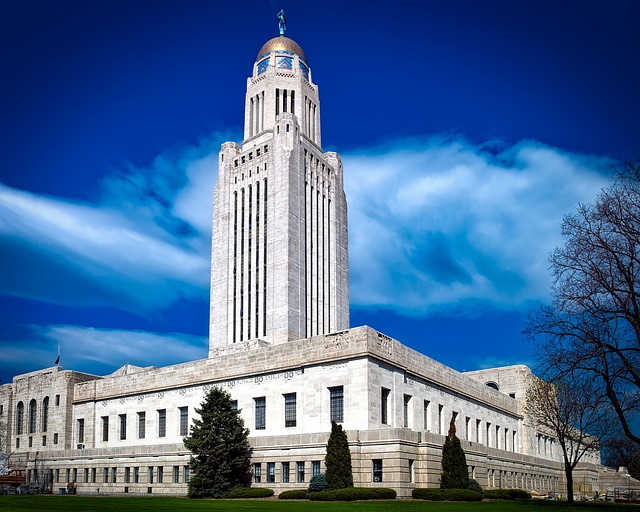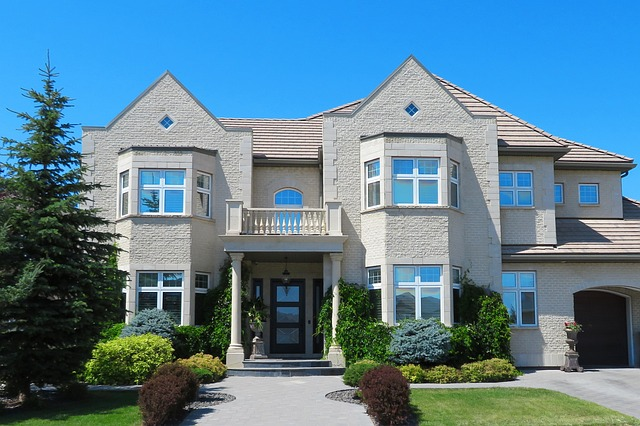
Once called “The Great American Desert,” Nebraska is now known for hosting vast tracks of farmland, good music, and spacious prairies (from Nomads Unveiled)–not to mention an interesting place to consider investing in real estate. Offering a unique glimpse of the American dream, Nebraska attracts students, young professionals, and tourists alike. Let’s take a look at some of the best places to investin Nebraska, as well as whether or not Nebraska is a good place to invest.
The Best Places to Buy Rental Investment Property in Nebraska
Investing in rental properties has long been a lucrative venture for real estate enthusiasts, and Nebraska offers some promising opportunities. With a stable economy, affordable housing market, and growing job opportunities, Nebraska is an attractive destination for property investors. Let’s explore the best places to buy rental investment property in Nebraska, with a focus on four key locations: Blackstone District in Omaha, Lincoln, Kearney, and Grand Island.
New to passive real estate investing?
Explore Ark7 OpportunitiesBlackstone District — Omaha

The Blackstone District, nestled in the heart of Omaha, is a thriving neighborhood known for its eclectic mix of dining, shopping, and entertainment options. Investors have recognized its potential due to its proximity to the city center and the University of Nebraska Medical Center. The area’s popularity with students, young professionals, and tourists ensures a steady demand for rental properties.
The district’s charm is underscored by historic architecture and a vibrant arts scene, which has driven property values upward. Rental property investors in Blackstone District often see competitive rental income and property appreciation. Additionally, the area’s strong job market, with healthcare and technology companies, provides stable employment prospects for potential tenants.
Lincoln

As Nebraska’s capital, Lincoln offers a diverse rental market with options ranging from downtown apartments to suburban homes. It is home to the University of Nebraska and numerous government offices, making it an excellent choice for student housing and government workers. The city’s job growth, combined with its strong sense of community, make it a prime destination for rental property investments.
Lincoln’s rental market enjoys a stable tenant base, with demand sustained by students, government employees, and professionals working in education and healthcare. The city’s growing tech industry has also attracted young professionals, increasing the demand for rental properties in the area.
Kearney
Kearney, located in central Nebraska, is a hidden gem for rental property investors. With a thriving economy driven by agriculture, manufacturing, and healthcare, Kearney has attracted new residents and a strong rental market. The city’s affordability, safe environment, and quality of life make it an appealing choice for families, retirees, and young professionals.
Kearney’s steady job market and lower property acquisition costs offer investors the opportunity for strong cash flow. Additionally, its central location in the state provides access to various outdoor recreational opportunities and cultural attractions, enhancing its appeal to potential tenants.
Grand Island
Grand Island, situated in the Platte River Valley, is another promising destination for rental property investments in Nebraska. The city’s economic diversity, including agriculture, manufacturing, and healthcare, ensures a steady flow of job opportunities. Grand Island has also seen significant population growth, driven by a strong job market, further boosting the demand for rental properties.
Investors in Grand Island can enjoy relatively lower property prices compared to larger cities while still benefiting from competitive rental income. The city’s family-friendly environment, proximity to recreational activities, and cultural attractions make it a great choice for those seeking long-term, stable rental income.
Nebraska Real Estate Market Overview

The Nebraska real estate market offers a multitude of opportunities for investors, from mortgage note investing to acquiring investment properties. This guide will take you through the nuances of the Nebraska real estate landscape, covering vital aspects like home appreciation rates, property types, investment property loans, population trends, and employment industries. By the end of this comprehensive overview, you’ll be well-equipped to make informed decisions as a real estate investor in the Cornhusker State.
Mortgage Note Investing
Mortgage note investing involves purchasing the mortgage note from a lender. In Nebraska, this can be a viable investment strategy, given the steady demand for housing and relatively low foreclosure rates. Investors can generate passive income through mortgage note investments by receiving monthly payments from borrowers.
Nebraska Home Appreciation Rates
Home appreciation is a critical factor for real estate investors. Nebraska’s housing market has experienced modest but steady appreciation rates over the years. While it may not match the rapid growth of some coastal cities, this stability can be an advantage for long-term investors looking for sustainable returns.
Nebraska Price To Rent Ratio Over Time
The price-to-rent ratio is a valuable metric for investors. In Nebraska, this ratio has shown a favorable balance over time, making it an appealing market for rental property investments. The affordability of owning a home versus renting can attract tenants and create a positive cash flow for investors.
Nebraska Rent Vs Owner Occupied By Household Type
Understanding the demographics of renters versus homeowners in Nebraska is crucial for investors. The state has a mix of homeowners and renters, with preferences varying by household type. Families may prefer homeownership, while younger individuals and students often opt for renting, presenting diverse opportunities for property investors.
Nebraska Types Of Homes
Nebraska offers a range of housing types, from single-family homes to apartments and condominiums. Investors can choose the property type that aligns with their investment strategy. Single-family homes are popular for long-term rentals, while multi-unit properties can provide higher rental income.
Nebraska Housing 2023 (and into 2024)
The real estate landscape in Nebraska in 2023 reflects the state’s steady growth and stability. The demand for housing continues to rise, making it a suitable time for investors to explore opportunities in the market.
Nebraska Investment Property Marketplace

Nebraska’s investment property marketplace is dynamic, with properties available in urban and rural areas. Understanding the local market conditions and having a clear investment strategy is crucial for success.
Nebraska Population and What It Means for Real Estate Investors
Population trends are a critical consideration for real estate investors. Nebraska’s population is characterized by its stability and a mix of age groups, which can present opportunities for both rental and home sales markets.
Nebraska Population Over Time

Examining the state’s population growth trends can provide insights into the potential for increased housing demand and the stability of the real estate market.
Nebraska Employment Industries (Top 10)
Nebraska, the Cornhusker State, boasts a diverse and robust economy supported by a range of industries. From the fertile plains of agriculture to the technological advancements in manufacturing and the pillars of education, Nebraska’s economy stands as a testament to resilience and innovation. In this article, we’ll delve into the top ten industries that contribute significantly to Nebraska’s economic growth.
- Agriculture
Agriculture is the cornerstone of Nebraska’s economy, representing an essential part of its cultural and economic identity. The state is a leading producer of corn, soybeans, beef, and pork. With vast expanses of fertile land and a tradition of farming excellence, Nebraska’s agriculture industry fuels the local and national food supply chain. Additionally, agribusinesses and food processing plants are crucial to the state’s economic landscape.
- Manufacturing
Nebraska’s manufacturing sector is a vital component of its economic engine. The state is home to manufacturers involved in food processing, machinery, transportation equipment, and more. The presence of major manufacturers like Berkshire Hathaway-owned companies and Union Pacific Railroad underscores the importance of this industry, providing numerous jobs and driving economic growth.
- Healthcare
The healthcare industry in Nebraska plays a pivotal role in the state’s economy. With world-class medical facilities, research institutions, and a growing healthcare workforce, Nebraska’s healthcare sector offers a range of opportunities for employment and economic development. The University of Nebraska Medical Center is a leader in medical education, research, and clinical care.
- Education
Education is not just an industry but a critical driver of the state’s progress. Nebraska’s educational institutions, including the University of Nebraska system and other universities and colleges, contribute to workforce development and research initiatives. The state’s strong emphasis on education ensures a continuous stream of skilled professionals across various fields.
- Construction
The construction industry in Nebraska experiences steady growth, driven by infrastructure development, commercial and residential construction projects, and renovations. As the state expands and modernizes its infrastructure, construction businesses have the opportunity to thrive, creating jobs and boosting economic activity.
- Financial Services
Nebraska’s financial services sector has a significant presence, with companies like Berkshire Hathaway, led by Warren Buffett, headquartered in Omaha. The insurance and financial services industry is a substantial contributor to the state’s economy, providing stability and employment opportunities.
- Transportation and Logistics
The central location of Nebraska in the heart of the United States makes it a strategic hub for transportation and logistics. Union Pacific Railroad, one of the largest railroads in the nation, has its headquarters in Omaha. With numerous highways, a strong transportation infrastructure, and rail connections, Nebraska supports a thriving transportation and logistics industry.
- Technology
Nebraska’s technology sector has been on the rise, with startups and established companies contributing to its growth. The state is fostering innovation through technology incubators and investment in the tech ecosystem. The emergence of tech-driven businesses offers new employment opportunities and diversifies the economy.
- Renewable Energy
Nebraska has made strides in renewable energy, particularly in wind energy production. The state’s vast plains provide ideal conditions for wind farms. Investments in renewable energy not only reduce carbon footprints but also create jobs and economic opportunities for local communities.
- Tourism and Hospitality
Tourism and hospitality are an important part of Nebraska’s economy. The state offers diverse attractions, from natural wonders like the Sandhills and the Niobrara River to cultural destinations like the Strategic Air Command & Aerospace Museum. Tourism generates revenue, supports local businesses, and promotes the state’s unique charm.
Nebraska Average Salary Over Time
The average salary in Nebraska has shown steady growth, reflecting the state’s economic stability. Investors can benefit from this by targeting renters with increasing earning potential.
Nebraska Employment Distribution By Age
Understanding the distribution of employment by age can help investors tailor their properties to meet the needs of the local workforce. For example, properties near universities may be well-suited for students, while suburban homes may appeal to working professionals.
Nebraska School Ratings
School ratings play a significant role in attracting families to certain neighborhoods. Investors should consider the quality of local schools when choosing areas to invest in, as it can impact the rental demand and property values.
Is Nebraska a Good Place to Invest?
Investing is a crucial decision that requires careful consideration of various factors, such as economic stability, growth potential, and market conditions. Nebraska, known for its vast agricultural landscapes, friendly communities, and strong work ethic, may not be the first state that comes to mind for many investors. However, this Midwestern gem offers a variety of opportunities for investors willing to take a closer look. In this article, we will conduct a comprehensive analysis to determine whether Nebraska is a good place to invest.
Economic Stability
One of the key factors that make Nebraska an attractive destination for investment is its economic stability. The state has a history of resilience, often outperforming the national average in terms of economic growth. This stability can be a significant advantage for long-term investors looking for consistent returns.
- Agriculture and Agribusiness: Nebraska’s agricultural industry is a stalwart contributor to the state’s economic stability. The state’s fertile plains produce significant quantities of corn, soybeans, beef, and pork, making it a linchpin of the nation’s food supply chain. Agribusinesses and food processing plants are critical components of Nebraska’s economy, ensuring a steady demand for their products.
- Diversified Economy: While agriculture is a central pillar of Nebraska’s economy, it is by no means the only one. The state has seen diversification in various sectors, including manufacturing, healthcare, technology, finance, and renewable energy. This diversified economy provides investors with multiple opportunities to explore.
Real Estate Market
The Nebraska real estate market offers a mix of opportunities, and understanding its dynamics is crucial for investors.
- Home Appreciation Rates: Nebraska’s real estate market has seen modest but consistent home appreciation rates over the years. While it may not match the rapid growth of some coastal cities, this stability can be an advantage for investors looking for sustainable returns.
- Price-to-Rent Ratio: Nebraska offers a favorable balance in the price-to-rent ratio, making it an attractive market for rental property investments. The affordability of owning a home versus renting can attract tenants and create a positive cash flow for investors.
- Investment Properties for Sale: Investment properties can be found across Nebraska, offering various options for investors. Due diligence, local market research, and assessment of rental income potential are crucial for successful real estate investments.
- Population Trends: Nebraska’s population trends can significantly impact the real estate market. The state’s stability, coupled with economic opportunities, attracts people to live and work there, creating a steady demand for housing.
Employment Opportunities
Investors often consider the employment landscape in a region before deciding to invest.
- Employment Industries: Nebraska’s employment sectors include agriculture, manufacturing, healthcare, education, finance, transportation, technology, renewable energy, and more. This diversity provides a range of job opportunities and supports various aspects of the economy.
- Average Salary: The average salary in Nebraska has experienced steady growth, reflecting the state’s economic stability. This provides opportunities for investors targeting renters with increasing earning potential.
- Unemployment Rate: Nebraska generally enjoys a lower unemployment rate compared to the national average. This indicates a more robust rental market and economic stability, which can be reassuring for investors.
Investment Opportunities
Nebraska offers a range of investment opportunities, including:
- Agriculture: For those interested in agriculture, Nebraska provides fertile land and agribusiness opportunities. While this field may require substantial capital and expertise, it can yield long-term, stable returns.
- Real Estate: The Nebraska real estate market presents opportunities for both rental properties and home sales. Investors can choose the property type and investment strategy that best suits their goals.
- Technology and Startups: The tech sector is on the rise in Nebraska, with startups and established companies contributing to its growth. The emergence of tech-driven businesses offers new employment opportunities and diversifies the economy.
- Renewable Energy: Nebraska is making strides in renewable energy, particularly wind energy. Investments in renewable energy can create jobs and boost local economies.
- Small Businesses: Nebraska is known for its supportive environment for small businesses. Entrepreneurs can explore a variety of industries and contribute to the state’s economic growth.
Check Out Nebraska Real Estate Investments with Ark 7

All in all, Nebraska presents a compelling case for investment. The state’s economic stability, diversified industries, affordable real estate market, and employment opportunities make it a good place to invest. While it may not offer the rapid growth seen in some coastal states, Nebraska’s steady, reliable, and relatively low-risk environment can provide long-term investors with stable returns and a resilient portfolio. It is essential, however, to conduct thorough research and work with local professionals to make informed investment decisions tailored to your specific goals and risk tolerance.
Looking for more places to invest, but not sure where to get started? Here are some articles you might be interested in:
- Best Places to Invest in Missouri
- Best Places to Invest in Iowa
- Best Places to Invest in Connecticut
- Best Places to Invest in Ohio
